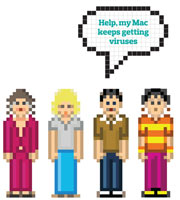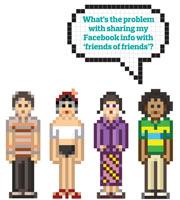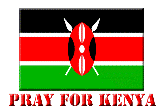When the Supreme Court decided against those who were contesting the
election of Uhuru Kenyatta anticipated jubilation broke out in Jubilee’s
ethnic strongholds. Gloom overcame other parts of Kenya. This was the
natural reaction and continues to play out. The new government’s
supporters both within and outside Kenya urged everyone to ‘move on’ and
focus on the future. Essentially, forget the past, accept the new
reality, find your space in it and get on with life.
‘LETS MOVE ON’ INTO UNCHARTED WATERS
Kenyans are a resilient lot and many have done just this.
To many, however, the ‘let’s move on’ clarion has literally come to
be understood as an abuse, in part because they have yet to come to
terms with the legitimacy of the President and Deputy President in
particular.
This is because the election was so ethnically divisive; it sunk the
Independent Election and Boundaries Commission (IEBC) like a canoe into
which too many bundles of cash had been thrown; and, for many, it moved
one of the new constitution’s most heralded novelties - the Supreme
Court – from the winners’ podium into a sort of governance pit-latrine.
The anger fuelled by this and the sense of helplessness to do
anything about it is existential and therefore durable. In the 1990s,
and first decade of the new century, flawed elections were held every
five years but Kenyans ‘moved on’ because in the horizon there was end
to the Moi era; there was a new constitution; there were so many reforms
coming into realisation after the elections.
Only to find, as a character in Francis Imbuga’s masterpiece
“Betrayal in the City” so memorably put it, “It was better while we
waited. Now we have nothing to look forward to. We have killed our past
and are busy killing our future”.
2013 was the transition of multiple tyrannies, both real and
imagined, from the tyranny of tribal numbers, to the terrorism of peace,
to the blatant dictatorship of ‘mta do?!’
It will take some time too, to come to terms with this present
dispensation for the many of considerable credibility, intellect,
analytical expertise and patriotism who honestly believe the election
was stolen; stolen massively and stolen well.
For now, the constant demand to let the nation ‘move on’ seems to
have bought Kenya the ‘peace’ so many so badly crave. However, it is not
unlikely that the reputation of the gaggle of ‘experts’ and their
institutions who opined authoritatively on a process that is still
fraught with so many questions that refuse to go away will fall into
serious doubt.
It will also force many of us to admit that over two decades of good
governance advocacy, anti-corruption work, constitution building,
democracy promotion, all costing billions, has seemingly brought us
backwards. For, as I mentioned some weeks ago, as a nation-building
exercise, the election failed badly.
These contradictions comprise the uncharted waters into which the
Kenyan ship has sailed. For the constitutional reality is that having
properly sworn their oaths of service, Uhuru Kenyatta and William Ruto
are Kenya’s President and Deputy President, notwithstanding the
encumbrances of the ICC, or the existentially divisive election and its
aftermath. It is a reality that we’ll have to make work for Kenya’s
sake.
UHURU FINDING HIS GROOVE
Indeed, distracted by their considerable excess political baggage, it
has been interesting to watch what have been some initial deft moves by
the UhuRuto duo. Kenyatta’s regular emphasis on the fact that he is the
President of all Kenyans is spot on. He now needs to get all Kenyans to
believe him.
Similarly, his attending events in opposition strongholds, has been
just the kind of move the country needs. He should try camping out at
the State Lodge in Kisumu for a week or two to build on this. Then those
in Kakamega, Mombasa etc. One of the good things about being flat on
your back in terms of expectations vis-à-vis national vision is that the
only way you can look is up.
That’s the theory. It is especially important now as a wave of
insecurity sweeps across the country, ironically, in some of the very
Counties where violence had been anticipated around the elections.
Under the previous constitution 90 days was all it took for a head of
state to consolidate power to the point that their overall direction in
terms of governance was clear. It’s been slightly more convoluted for
the Jubilee team partly because the constitution doesn’t allow the same
discretion their predecessors enjoyed. Still, a couple of trends have
become clear.
OUTSOURCING GOVERNANCE
First, the ‘private sector’ is clearly the primary client of this
administration in terms of policy. We are now Kenya Inc. and open for
business – in itself actually genuinely exciting for many. Indeed,
outside strongholds in the Rift Valley and Central Province, it is in
the boardrooms (not all but a critical mass of them) where Jubilee’s
victory has been most enthusiastically celebrated.
Some populist pledges have been made, but there appears to be an
understanding especially within the wing of our private sector with the
most reactionary tendencies – the owners of really large illegally or
irregularly acquired tracts of land and the service sector – that these
won’t be allowed to get in the way of business.
To their credit too, the Jubilee government’s leadership has been
careful to avoid any statements that may be misunderstood to mean that
an anti-corruption campaign is in the offing.
This, it can be argued, is one of the necessities when the
intellectual underpinnings of governance are outsourced to the private
sector, in what is actually a sophisticated condition of entrenched
crony capitalism for lack of better words. This typically has its
accompaniments - and graft is one of them.
The President and Deputy President have presented images of corporate
efficiency of the vein in which they ran their impressive election
campaign. Even the propaganda has been dished out with a slickness that
is without precedent.
The defining policy imperative underlying it all is the ICC of
course, which helped forge the central tribal alliance that in turn came
to define Jubilee. So critical is this self-imposed reality that it has
discombobulated diplomacy – internally and outside Kenya.
Indeed, it caused Kenya’s Representative at the United Nations to pen
a request to the Security Council that was so bizarre, some at first
questioned its authenticity.
RUTO: THE REAL ‘HALF LOAF’
The second issue that stands out about the new administration is that
even though he is called Deputy President, William Ruto, is actually,
for all intents and purposes, a co-principal.
Indeed, he is more of a co-principal than Raila Odinga ever was under
the old order of the post-2008 coalition. While ODM had settled for
‘half a loaf’ in political terms, what they seem to have got was a
couple of slices, larger and noisier motorcades and the chance for some
at individual self -enrichment on an unprecedented scale.
This latter attribute, some analysts argue, softened them up to the
point that they were unable to prepare properly for the 2013 poll; they
weren’t hungry enough. Their opponents on the other hand, were
tremendously focused.
After all, they were facing the successor to the Nuremberg Court that
brought down the likes of Hermann Goering, Rudolf Hess, Slobodan
Milosevic and others whose exploits tilled the earth that gave birth to
the state of Israel and continue to be the subject of PhDs, academic
tomes, novels, documentaries and sombre public holidays in countries
that consider themselves the most civilised in the world.
Ruto delivered and has firmly gripped his half loaf as evidenced by
his own statements and the line-up of Cabinet Secretaries that were
rolled out.
Those who doubt his grip and the extent of his leverage need only
consider the fact that despite the alliance of ‘peace’ and
‘reconciliation’ between the Gikuyu and the Kalenjin that now prevails –
Rift Valley IDPs aren’t racing back to farms from which they were
evicted in 2008.
All of us know, quietly and without too much fuss, that we aren’t
quite there yet; we aren’t even close. It is such inconveniences that
interrupt the ‘move on’ narrative for now.
One Gikuyu resident of the region not far from where Ruto was born
summed it up best when he told me: “Everyone was happy that Kenyatta and
Ruto were on the same side during the election because it reduced the
chance (likelihood) that Ruto’s Kalenjin supporters would attack us…
Here on the ground the mistrust is still strong.”
Incredibly, considering its credibility challenges, in this
environment even the much maligned TJRC is having difficulty handing
over its report to the President. In some sections of the media, it was
reported that they might have been thinking of ‘massaging’ the chapter
on land.
IDPs, for their part, are not shareholders in Kenya Inc. just yet.
They remain part of those either too angry to move on or are simply
suspicious of the hand they have been dealt and are waiting to
understand what it really all means. Time, they say, heals all things.
When the clock is working.
Moving on welcome to Kenya Inc by John Githongo 







